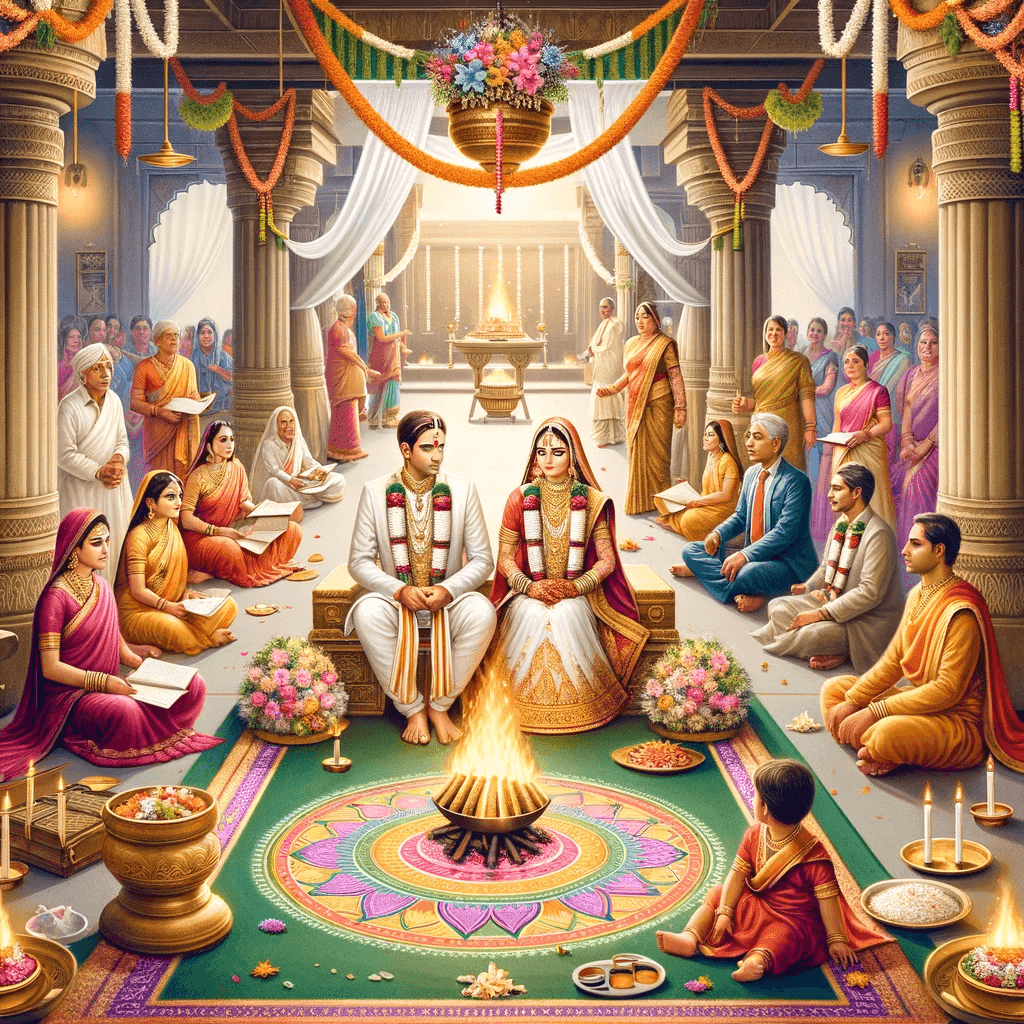Interfaith Marriages in Sanatan Dharma
Sanatan Dharma, commonly known as Hinduism, is often perceived as being against interfaith marriages. However, this view is more a reflection of societal norms and familial influences rather than the religious doctrine itself. This article explores the stance of Sanatan Dharma on interfaith marriages, drawing insights from various sources, including the Bhagavad Gita.
Myths/Truths and Other Details

Why There is a Myth?
The myth that Sanatan Dharma is against interfaith marriages likely stems from traditional societal norms and cultural practices in regions where Hinduism is prevalent. These norms often emphasize marrying within one's own faith and caste, leading to a misconception that such preferences are religious mandates.
What's the Truth?
Sanatan Dharma, in its scriptures and teachings, does not explicitly prohibit interfaith marriages. The focus of Hindu scriptures is more on spiritual and moral values rather than on rigid social structures. While societal and familial influences may vary, the religious doctrine itself allows for flexibility and personal choice in matters of marriage.
Scriptural Insights
- Bhagavad Gita's Perspective: The Bhagavad Gita, a key scripture in Sanatan Dharma, does not specifically address the issue of interfaith marriages. However, its teachings emphasize the importance of duty, righteousness, and individual dharma (inherent nature and moral duty), which can be interpreted as supporting the right to personal choice in marriage.
- Varna System: The Gita discusses the varna system, which is often confused with the caste system. Varna is based on an individual's qualities and actions, not birth (Bhagavad Gita 4.13). This distinction suggests that personal qualities and compatibility are more important than rigid social structures in relationships.
Societal and Cultural Influences
- Traditional Norms: In many Hindu societies, there is a preference for marrying within the same faith and caste. These norms are more cultural than religious and have evolved over time due to various historical and social factors.
- Changing Perspectives: Modern interpretations and changing societal dynamics are leading to a more open view of interfaith marriages within Hindu communities.
Ethical and Moral Considerations
- Harmony and Mutual Respect: Sanatan Dharma emphasizes harmony, mutual respect, and finding common ground in relationships, as suggested by various spiritual leaders and interpretations of Hindu scriptures.
- Individual Dharma: The concept of individual dharma in Hinduism supports the idea that one's personal duty and moral choices, including in marriage, are paramount.
...




